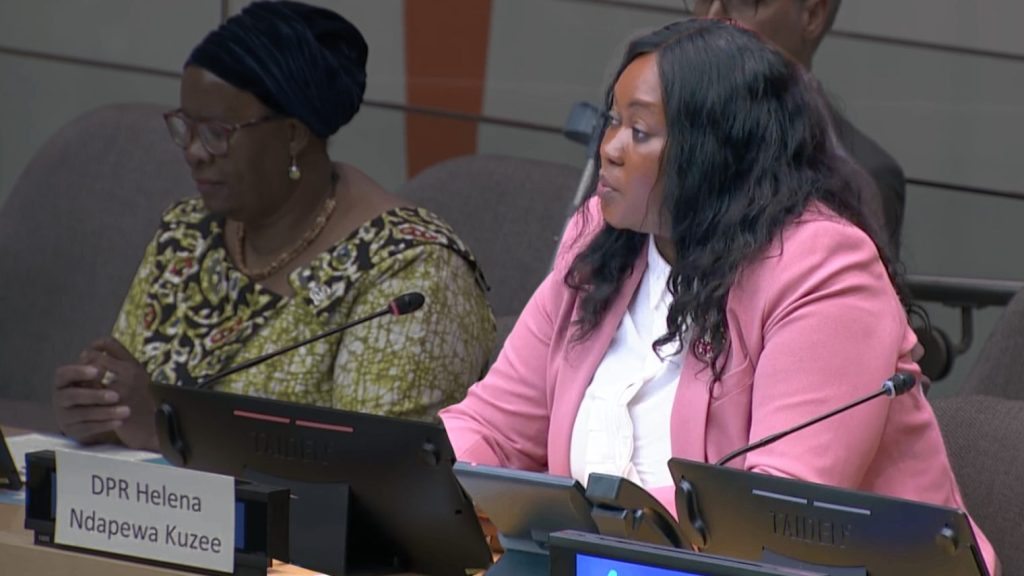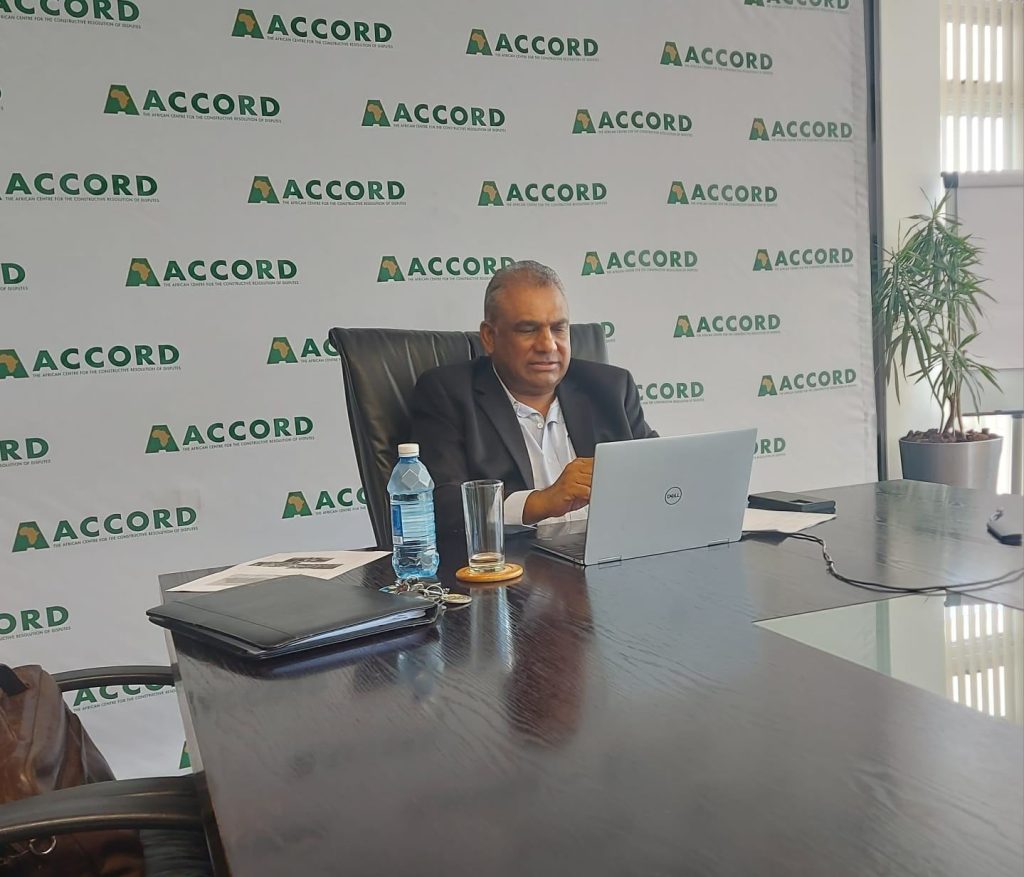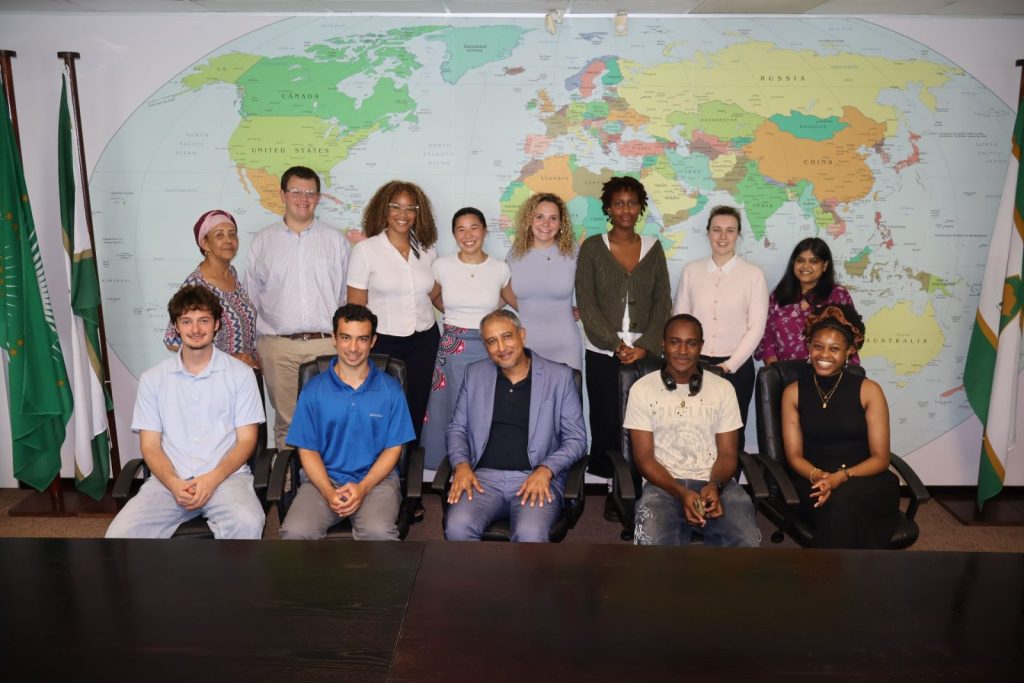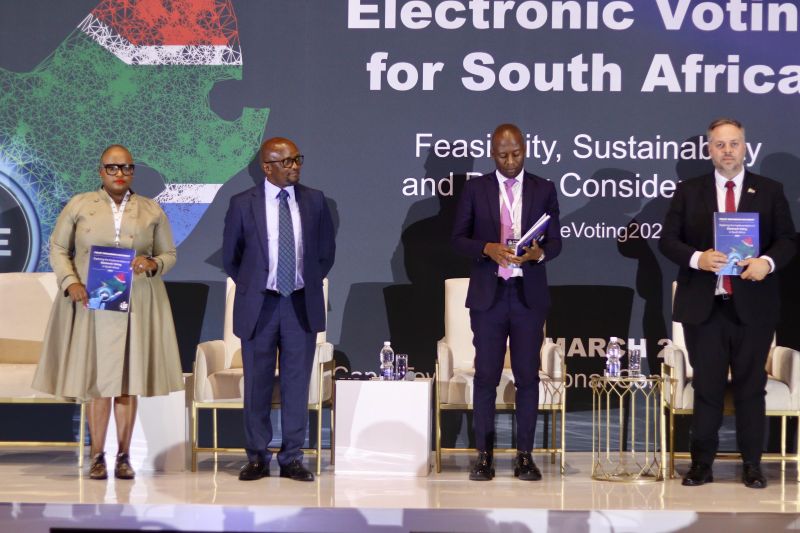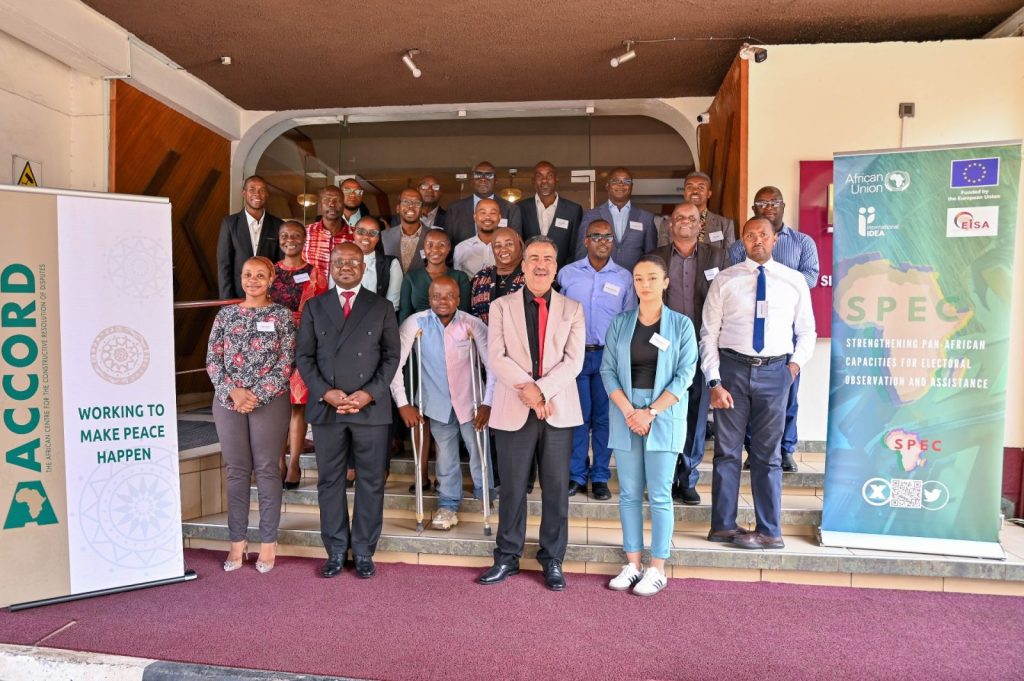The Training for Peace Programme at ACCORD (TfP/ACCORD) in collaboration with the African Union Peace Support Operations Division (AU PSOD) hosted the Fourth Annual African Standby Force (ASF) Civilian Focal Points Planning Meeting. The workshop provided a platform for the civilian focal points and planning personnel from the AU PSOD and the Regional Economic Communities/Regional Mechanisms (RECs/RMs) to review the progress attained, identify common areas of concern, and develop joint annual work plans which identify key priorities for the operationalisation of the civilian dimension of the ASF.
The Fourth Annual ASF Civilian Focal Points Planning Meeting was held from 10-12 October 2013, in Nairobi, Kenya. The meeting was attended by 35 participants in total, led by the civilian team of the AU PSOD (embedded in the Capability Development, Policy Development, and Plans and Operations Units); including representatives drawn from the RECs/RMs who are directly responsible for the development and daily management of the civilian component of the ASF, including the Economic Community of West African States (ECOWAS); the Economic Community of Central African States (ECCAS); and the North African Regional Capability (NARC); and in addition, representatives and other experts who have directly worked on the development of the civilian dimension of the ASF and/or who are or will be working in direct support of their respective RECs/RMs, including service providers in training and rostering such as the African Centre for the Constructive Resolution of Disputes (ACCORD); the Kofi Annan International Peacekeeping Training Centre (KAIPTC); the Legon Centre for International Affairs and Diplomacy (LECIAD); Southern African Development Community – Regional Peacekeeping Training Centre (SADC RPTC); the National Defence College Nigeria (NDCN); the African Peace Support Trainers Association (APSTA); the African Civilian Response Capacity for Peace Support Operations (AFDEM); and partners such as Deutsche Gesellschaft für Internationale Zusammenarbeit (GIZ) and Centre for International Peace Operations (ZIF). TfP/ACCORD was represented by Ms Seun Abiola, Peacekeeping Unit Coordinator; and Ms Barbara Mohale, Peacekeeping Unit Programme Officer.
There has been significant progress regarding the development of civilian dimension of the ASF since 2010. This was of great importance in order for current peace support operations to manage political processes so as to better ensure the attainment of sustainable peace and stability. Between 2006 and 2010, a number of processes were undertaken to develop the necessary policies and/or key base documents informing the ASF civilian dimension. By 2012 the PSOD had mainstreamed mission management, substantive and support elements into the planning and management of AU-mandated peace support operations was providing significant support to civilian personnel deployed in AU operations, and had undertaken a range of projects to strengthen specific priority areas of engagement, including with regards to the protection of civilians, conduct and discipline and gender. Further, in early 2013 the PSOD recruited civilian personnel to fill newly created posts in its organisational structure, and launched and utilised a pilot version of the AU Civilian Standby Roster for current and future missions such as the African-led International Support Mission to Mali (AFISMA), thus providing the AU with the means to recruit and deploy civilian personnel across a range of mission scenarios in a more effective and efficient manner.
Over the past years the RECs/RMs have worked towards the development of the civilian dimension of the regional standby forces; recruiting civilian personnel to their planning elements, providing training to civilians in their regions, conducting multi-dimensional exercise cycles, and increasingly factoring the civilian dimension and multi-dimensionality into their planning processes. The purpose of the meeting was to review progress attained in the development of the civilian dimension of the ASF at continental and regional levels over the period September 2012 – October 2013; share current efforts underway at the continental and regional levels on the development of the civilian dimension; and to share projected work plans and priorities for 2014. In particular, salient tasks to be worked on in the coming 12-month period were related to enhancing coordination and collaboration between AU PSOD and the RECs/RM, amongst the RECs/RMs, and between the RECs/RMs and their member states.
This annual engagement provides the opportunity for TfP/ACCORD to contribute to harmonising a multidimensional ASF Training Plan for 2014-2015 that will prepare ASF Forces adequately within the framework of ASF Roadmap III. This is in line with the TfP Programme’s strategic goal for improved and sustainable capacity for peace operations on the continent, through ensuring that functional organisational systems are in place in the UN, AU and RECs using relevant policy frameworks mandated by the UN, AU and RECs. In particular, the anticipated result of this activity was in line with TfP/ACCORD’s specific objective to assist the AU and RECs in the development of the civilian structures of their standby forces and Planning Elements (PLANELMs), for operationalisation of the ASF by 2015.
The Training for Peace Programme at ACCORD is an initiative funded by the Norwegian Ministry of Foreign Affairs.



